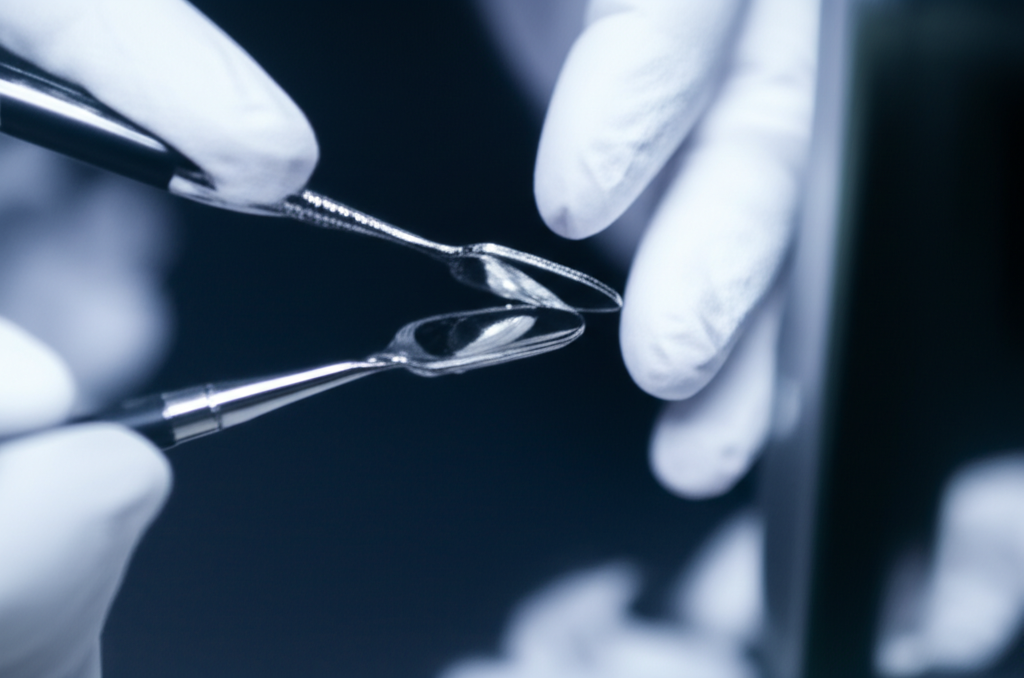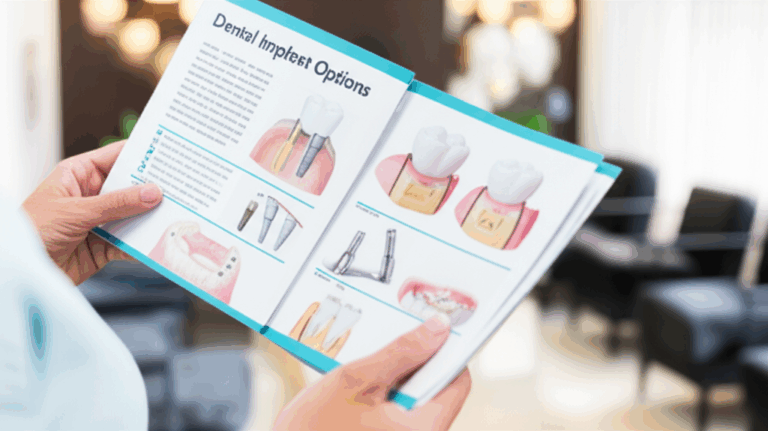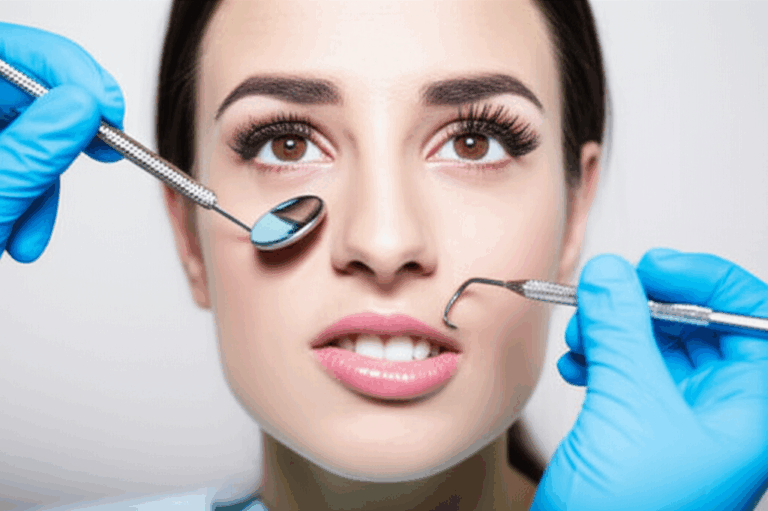
Does Discovery Health Medical Aid Cover Dental Implants in South Africa? A Simple Guide
Table of Contents
- Introduction
- Discovery Health’s View on Dental Implant Coverage
- Understanding Discovery Health Dental Benefits Across Plans
- How Plan Levels Affect Coverage
- Major vs. Advanced vs. Specialized Dental Benefits
- Key Things That Decide Dental Implant Coverage by Discovery
- Medical Need
- Pre-approval is Needed
- Waiting Periods
- Annual Limits and Maximum Benefits
- Co-payments and Deductibles
- Plan Rules and What Isn’t Covered
- Which Parts of Getting a Dental Implant Might Be Paid For?
- Tests and Scans
- Prep Procedures
- Implant Placement
- The Tooth Replacement
- Anaesthetic and Aftercare
- How to Check Your Own Discovery Health Dental Implant Benefits
- Look at Your Policy
- Ask Discovery Health Directly
- Talk to Your Dentist or Oral Surgeon
- Ways to Handle Costs and Look for Other Choices
- Get Detailed Quotes
- Check Your Benefit Statement
- Think About Gap Cover
- Payment Plans and Finance
- Other Treatments Discovery Might Cover
- Conclusion
- Frequently Asked Questions (FAQs)
Introduction
When I first wanted a dental implant for a missing tooth, I found myself buried in paperwork, weird words, and fine print that made my head hurt. I kept asking: Does Discovery really pay for implants? Or will it all be up to me? And if they do, where do I even start?
Getting Discovery Health Medical Aid in South Africa to help pay for dental implants can feel like trying to find your way in a maze. Sometimes things work out, sometimes you hit a dead end, and sometimes you find a shortcut if you know a trick. I’ve been there myself. I know how overwhelming it can get, especially when the quote for treatment looks as big as a secondhand car. I found out that the answer isn’t a simple yes or no. It depends on your plan, whether the implant is for real health reasons, how long you’ve been on the plan, and if you do all the paperwork properly with Discovery and your dental team.
Let me share the simple map I wish I’d had when I started out. By the end, you’ll have a much better idea of how Discovery’s dental implant rules work, so you can feel more in control about what can (and can’t) be paid for.
Discovery Health’s View on Dental Implant Coverage
Let’s get right to it. Discovery Health calls dental implants “specialized” or “major” dental treatment. After talking to them a lot, here’s what I learned:
- Coverage is usually limited
- It really depends on your plan
- It’s mostly about real health problems, not looks
Big Difference: Cosmetic vs. Medically Needed Implants
Why does this matter? Because Discovery and other health funds sort out what is “cosmetic” (just for looks) and what’s a real health need.
If your main reason for an implant is to look better, Discovery usually says no. But if you had a bad injury, were born missing teeth, or can’t chew or talk well, you may get some help—at least for part of the cost. The reason you need an implant is super important.
Understanding Discovery Health Dental Benefits Across Plans
Discovery doesn’t have only one option. Your actual plan decides if they’ll pay anything for implants.
How Plan Levels Affect Coverage
Here’s what I found when I compared the main choices:
Comprehensive Plans (Executive, Classic, etc.)
These are the top plans with higher monthly payments. I was on Classic. There’s a better shot at getting some help here, but the amount is capped. There are lots of limits and rules, and you still have to get approval first.
Core/Smart Plans (Smart, Essential, KeyCare)
If you’re on a cheaper plan, don’t expect much for implants. These plans usually just help with basics: check-ups, fillings, and extractions. Implants are almost never covered, unless it’s a big health issue (like from an accident) and is linked to being in hospital, not an ordinary visit to the dentist.
The Fine Print
No matter the plan, you have to apply first—get pre-approval—and provide letters from your dentist or surgeon, X-rays, and often more.
Major vs. Advanced vs. Specialized Dental Benefits
Discovery’s groups can be confusing, but they matter:
- Major Dental Work: Things like crowns, bridges, dentures, and sometimes implants. Usually low yearly limits.
- Specialized/Advanced Dental: Implants are often here. Getting approval is even harder. This is really for cases when nothing else works.
- Cosmetic Dentistry: For looks only—like whitening or veneers—almost always not covered on any plan.
Key Things That Decide Dental Implant Coverage by Discovery
From my own experience, these are the main things that affect if you’ll get any payout:
Medical Need
This is Discovery’s favourite rule. When are implants needed for health? In my case, I needed letters from my dental specialist, X-rays, and proof that a bridge or dentures wouldn’t work because of my jaw.
A key piece for me was a letter saying eating was hard and I was losing jaw bone. If you get implants after trauma, you were born without a tooth, or you can’t chew well, gather all the proof you can. That gives you the best chance.
Pre-approval is Needed
Here’s the deal: If you don’t get pre-approval, Discovery will not pay. At all. I almost missed this myself. Here’s my process:
Don’t skip this step!
Waiting Periods
I didn’t know this at first. Surgery like implants often has a waiting period—usually a year. You can’t claim anything until you’ve been on your plan that long. This stops people joining just to claim for one big thing and then leaving.
Annual Limits and Maximum Benefits
Even if you get approval, Discovery only gives so much each year. My Classic plan’s dental limit was way less than my actual implant cost. I got help for part, but paid the rest myself. Always check your own plan’s limit before you decide.
Co-payments and Deductibles
Even if Discovery pays for part, you pay the rest. For implants, my share was a percentage—sometimes 10–50% of the cost, or more, if the cost was more than Discovery’s yearly limit.
Plan Rules and What Isn’t Covered
If you don’t read your plan rules, you might miss out. Discovery’s rules are strict for:
- Cases that are just for looks
- If you don’t tell them about old dental problems
- Implants for problems you had before joining but didn’t declare
Read your plan carefully. If you’re not sure, ask and get answers in writing.
Which Parts of Getting a Dental Implant Might Be Paid For?
A dental implant isn’t just one job. I learned each step is separate, and Discovery treats each one differently.
Tests and Scans
Before anything, I needed X-rays and 3D scans. Discovery paid for normal scans under day-to-day benefits. More detailed scans needed paperwork if they were for surgery. Regular check-ups are usually fine, if you still have benefit money left.
Prep Procedures
Need a tooth pulled out, bone added, or sinus lifted? This can get tricky. Extractions were easy—Discovery covered these. Bone and sinus work needed letters and approval. I got some money back after lots of forms and back-and-forth.
Implant Placement
This is the priciest bit, and usually the least covered. Most of my titanium screw was paid from my own pocket, but my plan covered a small part. Usually Discovery gives a set amount per implant (like R10,000–R25,000 if on a good plan), but nothing for just-cosmetic cases.
The Tooth Replacement
After the screw comes the piece that looks like a tooth (crown) and the abutment. These are handled on their own. Sometimes there’s a small yearly limit for crowns or bridges, but it probably won’t cover the real crown cost, especially if you want something nicer. Look at your “major dental work” cover; implant crowns sometimes fit in there.
Anaesthetic and Aftercare
If you have your surgery in hospital, you might get some help for the anaesthetist (the person who puts you to sleep). If not, it’s harder. My pain pills and check-ups after were usually under my day-to-day benefits, so I kept the receipts.
How to Check Your Own Discovery Health Dental Implant Benefits
It’s easy to get confused. Here’s how I always double check:
Look at Your Policy
Open your own policy papers. Discovery plans have a section called “major dental work,” “oral surgery,” or “specialized dentistry.” Search for words like “implants,” “crowns,” or “not covered.” If you can’t find it, look on the website or app.
Ask Discovery Health Directly
Once I read my rules, I call them to make sure I understood. I ask:
- Does my plan cover implants at all?
- What yearly limit is there for me?
- What forms do I send for approval?
I write down the answers, plus the person’s name and date, in case I need it later.
Talk to Your Dentist or Oral Surgeon
A dentist who knows Discovery’s rules is really helpful. They can:
- Give the right plans and prices
- Write letters to explain why you really need the implant
- Send in all your forms, which sometimes speeds things up
Some of them use top dental ceramics lab teams, so your documents are done the right way.
Ways to Handle Costs and Look for Other Choices
Honestly, the cost of my dental implant shocked me. Discovery’s help was good, but didn’t pay all of it. Here’s what made it easier for me:
Get Detailed Quotes
I didn’t take the first price I got. When I asked different clinics, I saw prices can change a lot—especially for lab work, materials like zirconia or titanium, and who did the job. Sometimes, if you use a zirconia lab, the prices are higher.
Check Your Benefit Statement
When Discovery paid, I checked each item on the statement. This let me see what they covered, what they didn’t, and if I could maybe ask again (appeal). I always match this with my dentist’s bill.
Think About Gap Cover
Discovery’s payment didn’t cover everything. A special “gap cover” top-up policy can help for big expenses that cross hospital or doctor costs.
Payment Plans and Finance
I talked to my dental team and asked for small payments, since my case lasted many months (planning, implants, crowns, follow-ups). Lots of clinics let you pay off the bill month by month, which helped me a lot.
Other Treatments Discovery Might Cover
Sometimes, implants are just too expensive. I checked other ways and found Discovery paid more for:
- Dental bridges — Usually part of “major dental” benefits, with better yearly limits, especially if bridges are done well in a crown and bridge lab.
- Dentures — Full or partial dentures are under “prosthodontics” and were covered on most plans except the very cheapest.
I would prefer an implant for comfort, but it was good to know all my options.
Conclusion
The main thing I learned after months with Discovery Health’s tricky dental implant system is: It’s not hopeless, but don’t expect Discovery to pay for everything. What you can claim depends on your plan, your medical reason, and how well you do the forms—especially pre-approval and waiting your turn.
Implants almost always have strict limits, and you’ll have to pay some yourself. Always check your own rules, get answers in writing, and keep your dentist on board.
Asking lots of questions and staying organised means fewer shocks for you—and you’ve got a much better chance of getting help for your new tooth.
Frequently Asked Questions (FAQs)
Q: Is a dental implant just for looks?
In most cases, yes—Discovery says most implants are for looks, unless you can prove there’s a big health reason (like injury, real trouble eating, or being born without a tooth). You’ll need lots of proof.
Q: Can I get money back for an implant done years ago?
You can only claim while you’re a member, and only if you got approval first. Work done before you joined or without approval is not paid for.
Q: Does being on Vitality change what Discovery pays for implants?
No. Vitality is about wellness rewards—doesn’t change your dental implant cover.
Q: What if Discovery says no to my pre-approval?
You can try again by sending more documents or asking your dentist to explain more. But if they still say no, you pay for it yourself.
Q: Are mini dental implants paid for differently?
Mini implants are usually in the same group as normal implants. Your cover still depends on medical reason, pre-approval and your plan. Ask Discovery about your own cover.
If you’re thinking about implants, my simple advice: Take it step by step. Double-check every rule, ask for help, and look at other options if you need. A little extra effort will make a big difference.








